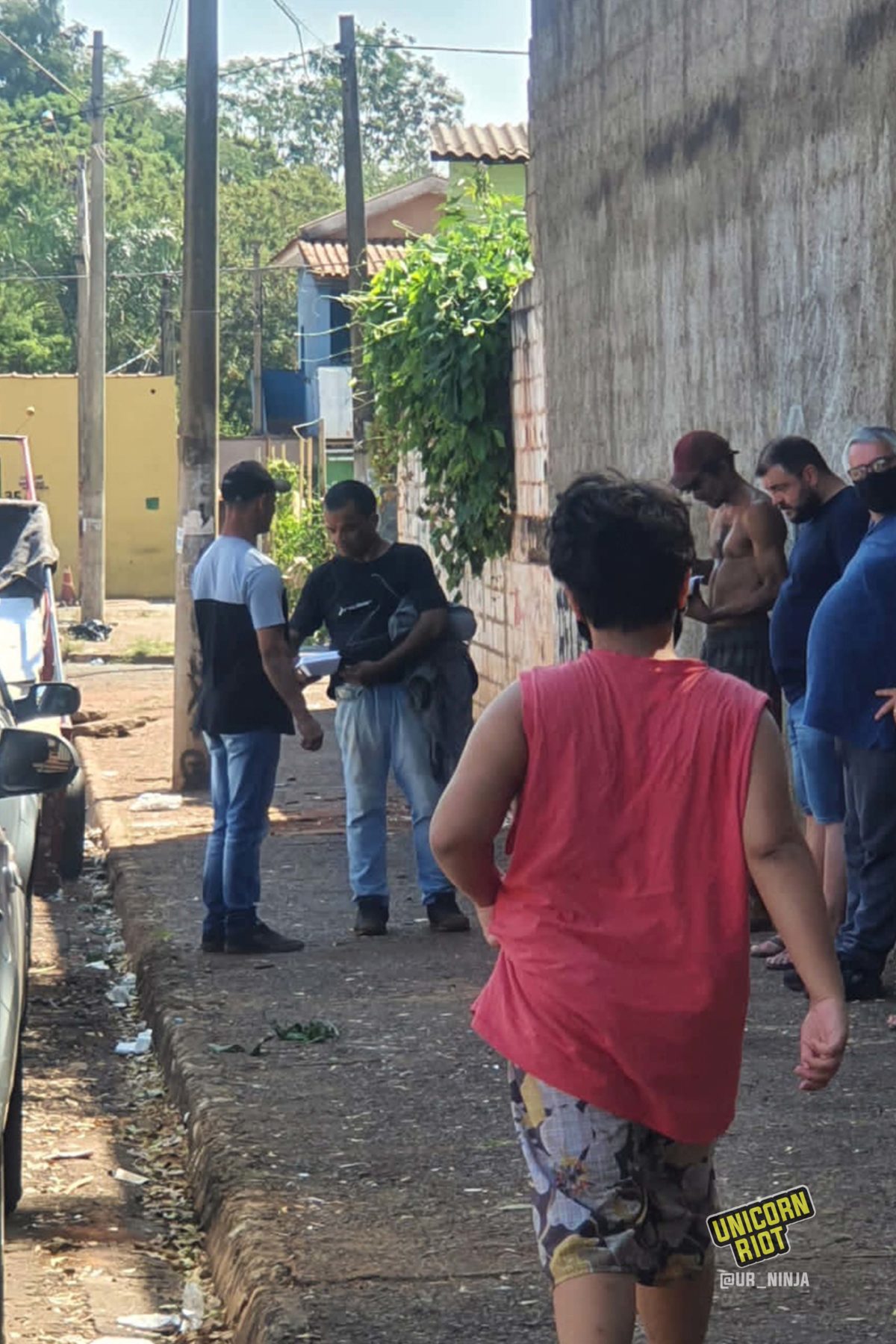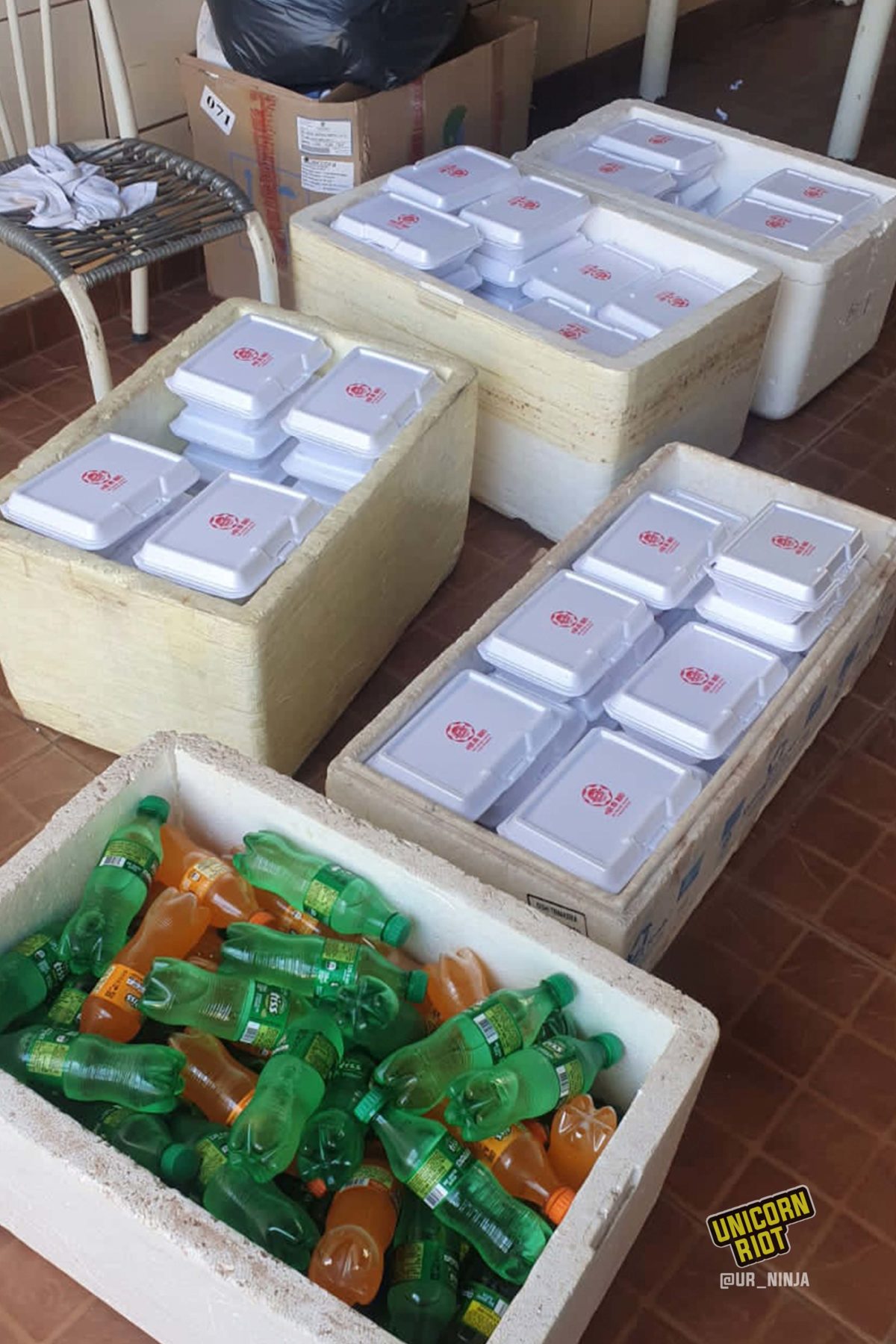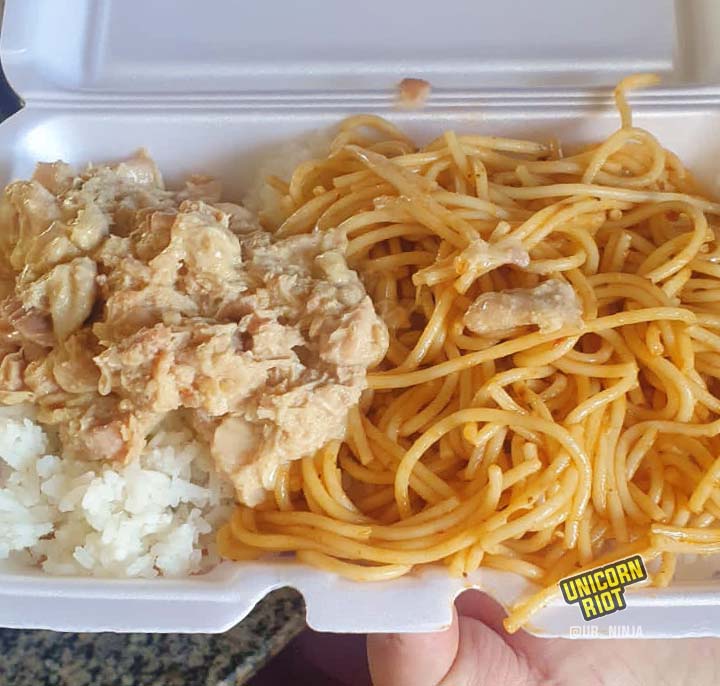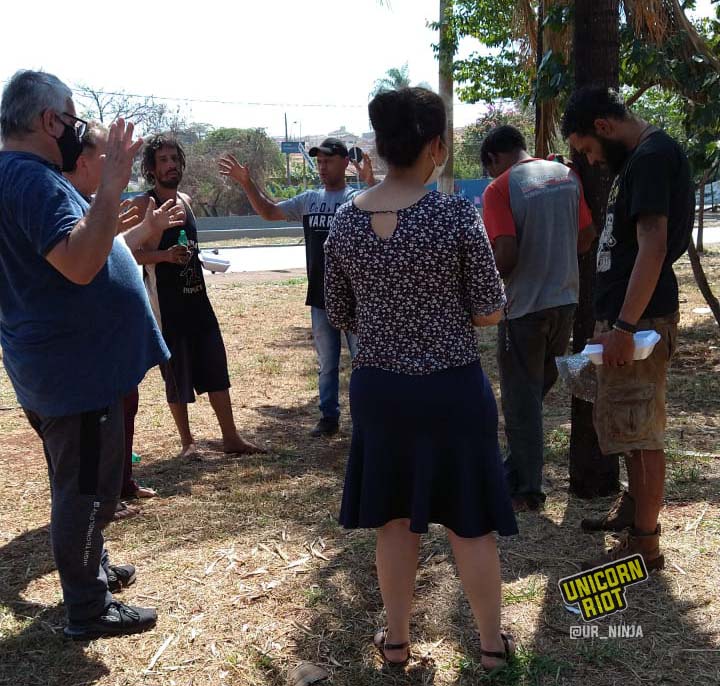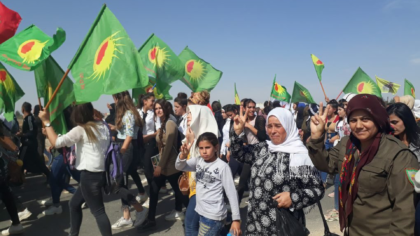Brazil: Mutual Aid During COVID-19 and Bolsonaro’s Mismanagement
Mutual aid projects are providing much needed support and hope to those in Brazil as the country continues to deal with the humanitarian crisis caused by the coronavirus pandemic. Brazil has one of the worst death rates in the world from COVID-19, with over 589,000 lives lost. Meanwhile, Brazil’s President Jair Bolsonaro, who’s still reluctant to wear masks, is under investigation by the Supreme Court for his handling of the pandemic and for spreading misinformation about the virus.
As Brazil approaches 600,000 COVID-19 deaths, partisan politics have made it virtually impossible to implement public health policies to contain the virus and improve the living conditions for Brazilians. Political opponents along with scientists and researchers have blamed Bolsonaro’s “anti-science” policies for the large number of deaths caused by the ongoing public health crisis. There are 21,102,536 confirmed cases and 589,744 deaths as of September 18, 2021.
Bolsonaro continues to be unwavering in his opinions of the crisis and has made speeches attempting to ignite Brazilians to turn against science, Brazil’s left wing and the STF (Supreme Court) while hinting towards military intervention to continue his power after a military parade in August and a large rally on September 7.
In light of the negative messaging campaigns by both sides, people have taken it upon themselves to provide support and aid for their communities and neighborhoods. Collectives, NGOs, private institutions, and religious institutions have helped the daily lives of the less fortunate people through mutual aid drives, mobilizations, and donations.
Miqueias Luiz Miguel, Pastor of Ebenezer Church
Mutual aid initiatives have become a backbone of support for the Brazilian people. The majority of those in Brazil volunteering to provide mutual aid do it without wanting anything more than the satisfaction of being able to help the next person. This is the case with Miqueias Luiz Miguel, a tax auditor and pastor of the Ebenezer Church in the city of Ribeirão Preto, São Paulo, has done some extensive social work.

We got to know a little bit more about Miguel, his perspectives regarding the current situation in the country and what he calls his “pleasurable” job of supporting the most needy.
UR: Have you already had a dose of vaccine against COVID-19?
Miqueias Luiz Miguel: Yes, the first dose of the CoronaVac vaccine.
UR: Have you ever lost a family member, friend or acquaintance to the coronavirus?
Miqueias Luiz Miguel: I lost some acquaintances.
UR: Have you developed or are you developing any social projects to help people with difficulties in supporting themselves during the pandemic?
Miqueias Luiz Miguel: Yes. We at the Ebenézer Church in the Jardim Zara neighborhood, in Ribeirão Preto, distribute food supplies in the community, in addition to distributing pre-packaged meals to homeless residents.
UR: In your opinion, is the country properly managing the pandemic?
Miqueias Luiz Miguel: Not as it should. There is a lack of information and encouragement from the government itself to deal with the situation, especially with the poorest population.
UR: Does the country still have salvation for you?
Miqueias Luiz Miguel: Yes, the country has hope. The very beginning of everything is to organize, unite, and fight against corruption within the three branches: the Legislative, the Executive and the Judiciary.
UR: What is your opinion about the possibility of ex-president Luiz Inácio Lula da Silva being able to run again in the presidential election?
Miqueias Luiz Miguel: If he, Lula, is before the law free to do so, no problem.
UR: If everyone in the world could hear you today, what would you say to them about the COVID-19 pandemic in Brazil?
Miqueias Luiz Miguel: Proper information, respect for others, and the honesty from government officials can save lives!
Mutual Aid: The Only Support Some Can Find
Organizations, collectives, and neighborhood groups across the world have altered their services since the pandemic. In Brazil, many of these groups have been providing immense support to communities in need throughout the country.
During the beginning of the pandemic last year, we heard from Director Lia de Oliveira of the arts and culture collective Minas Da Quebrada who distributes basic food and hygiene baskets along with cleaning kits and alcohol gel in the peripheral Flexal 2 neighborhood of Cariacica, Brazil. She said they don’t do the work of mutual aid for photo ops and take measures to stay safe from the virus while working with the community.
“Without ever exposing any of ours, without no photo, no embarrassment for our brothers and sisters who are, as well as us, facing moments of difficulties.“
Lia de Oliveira, Director of Minas Da Quebrada
Playing a large role in Greater Vitória, and also throughout the state of Espírito Santo, the Central das Communities (CDC), chaired by Marcelo Siqueira, distributed 30 tons of food and seven tons of cleaning supplies and hygiene kits during the height of the pandemic. CDC is hoping to go back to focusing on culture, sports, and entrepreneurship post pandemic.
DJ Pity, part of the biggest Baile Funk (favela Hip-Hop) group in the Aglomerado da Serra community, told Unicorn Riot in March 2021 that the favela helps the favela because “nobody else will.” Pity is part of the Serrão without Corona movement, which helped families in Belo Horizonte, Minas Gerais, last year. “There’s a lot of people in need … a lot of hunger,” DJ Pity told Unicorn Riot.
“They [the state] don’t look over the favelas. Everything happening in here is made from and for the population. We’re doing food distribution, we’re helping our people in need.“
DJ Pity
The Coronavirus Crisis in Brazil – An Interview with EmiciThug – May 22, 2020
Brazil Nears 200K Deaths as Politicians Continue to Downplay COVID-19 – December 20, 2020
Brazilian Pandemonium: COVID-19 Kills Over 300K – March 27, 2021
“Brazil is Asking for Help” – Artists and Activists Speak Out – April 10, 2021
Pandemic Mismanagement
A Parliamentary Commission of Inquiry (CPI) investigation into how the Brazilian government has dealt with the coronavirus pandemic has been underway since early May 2021. The inquiry has shown that the lack of preparation and the use of unconventional strategies on the part of the Bolsonaro administration was a main cause of the chaotic response. Bolsonaro has undone WHO (World Health Organization) guidelines, held mass gatherings without masks or social distancing, and made inappropriate statements against those who’ve perished during the pandemic.
The CPI has also pointed out a series of other problems caused by the mismanagement of the crisis, such as denials on offers received for vaccines and possible irregularities in vaccine purchase negotiations by the Bolsonaro government.
Calling the Bolsonaro admin’s response to the pandemic a “death agenda affecting indigenous and quilombola people,” scientists published a report titled ‘How Brazil’s President turned the country into a global epicenter of COVID-19‘, detailing aspects of fault and wrongdoing in Bolsonaro’s pandemic response.
“A set of bills known as the “death agenda” has reduced the protection of indigenous lands. The President’s discourse has stimulated land grabbers (grileiros), wildcat miners (garimpeiros) and loggers to invade indigenous lands, and these invasions have occurred in record numbers…The presence of invaders spreads SARS-CoV-2 in indigenous villages.“
‘How Brazil’s President turned the country into a global epicenter of COVID‑19‘
With the arrival of new COVID strains in Brazil such as the Delta variant, the contagion and the increase in the number of cases and deaths continue to grow. The Brazilian government has struggled to provide the necessary political and humanitarian structure to deal with the pandemic. Many citizens lack resources and are struggling to feed their families with high prices on basic food and hygiene products along with the lack of municipal, state and federal unemployment or support to deal with the crisis.
Vaccine Rollout
A coalition of press and organizations in Brazil created a consortium to research the effects of COVID-19. This was formed in June 2020 after Bolsonaro restricted citizens’ access to data about the pandemic. The data compiled by the consortium shows the number of cases in the country, the number of deaths, the most affected regions, and more. The consortium data also shows the number of vaccinations. As of Thursday, September 17, 141,085,194 Brazilians (66% of the population) have received the first vaccine dose against COVID-19 while 79,314,211 (37%) are fully immunized.
With the federal government mired in corruption scandals, vaccines have been a huge topic in the country for the last year with the majority of the population yearning for access. In early 2021, Brazil approved the Sinovac and AstraZenca coronavirus vaccines for use. There are now seven vaccines approved for use in Brazil currently: Pfizer/BioNTech, Sputnik V, Johnson & Johnson, AstraZeneca, Covishield, Vero Cells, CoronaVac.
Scientists are still attempting to understand the effectiveness and/or veracity of the immunization agents available in Brazil. There are thousands of cases of people already immunized, whether by one or two doses of the vaccine, who’ve died as a result of the coronavirus. Although some deaths include the vaccinated, the percentage who’ve been vaccinated that die after contracting the virus is much lower than those who have not.
Election Fraud Claims
For years now, Bolsonaro has continued his claims of electoral fraud from 2014 as well as the first runoff of the 2018 Presidential election, which he states initially prevented him from winning the 2018 election in the first round. He later won in the next round of votes and has spent several immensely controversial years governing the country since taking over.
As Bolsonaro prepares for national elections in 2022, likely against popular former President Luiz Inacio Lula da Silva (“Lula”), he has supported a push to change the electronic voting system in the country. On August 10, a proposed amendment to the constitution backed by Bolsonaro, would have allow for printed receipts of electronic ballot boxes during elections, but it was voted down by the Chamber of Deputies. For approval, the amendment drafted by Congresswoman Bia Kicis (PSL-DF) needed about 308 votes, but only received 229, another 218 deputies voted against the PAC (Proposal for Amendment to the Constitution).
On the day of the vote, Bolsonaro hosted a large military parade on the Praça dos Três Poderes Square in Brasilia, the country’s capitol city. The government said the parade had been previously planned, but they hadn’t announced it until a day beforehand, leading many to believe it was an attempt by Bolsonaro to intimidate the vote and the courts.
Based on the Supreme Court’s inability to change the voting system, Bolsonaro is now claiming Supreme Court Justices are attempting to rig the 2022 elections against him and has made statements inferring to using the military to hold onto power.
Run-Up to Bolsonaro’s Mass Gathering on September 7
In response to the ‘no’ vote by Congress, many Brazilian elite who hold control of Brazilian natural and industrial resources, began to organize and prepare to take to the streets, even asking for military intervention.
A video posted on social media by a well-known right-wing politician and country singer named Sérgio Reis summoned Bolsonaro supporters, truck drivers and businessmen to stop the country for 72 hours on September 7, the day when Brazil’s independence is celebrated.
“We will stop for 72 hours. If you don’t do anything, in the next 72 hours, no one walks in the country, there won’t even be a truck to bring you the beans here.
Everything will stop. It’s not just Brasília, it’s the whole country.
Nothing will be the same, it has never been the same as what will happen on September 7, 8, 9 and 10, and if they [the STF ministers] do not obey our request, they will see how the snake will smoke, and woe to the truck driver who breaks this block.“
Sérgio Reis on social media
Reis, who has a fortune valued at around R$274 million distributed among herds of cattle, hectares of land, houses, and cars, had his home raided along with nine others for investigations into their alleged incitement to stoke violent protests.
While the pro-Bolsonaro demonstration on September 7 in the country’s Capitol was attended by over 100,000 die-hard supporters, mass gatherings of leftists and antifascists also occurred throughout the country to celebrate Brazilian Independence Day.
Continue to follow Unicorn Riot for more from Brazil, including the September 7 rallies.
Article translation from Portuguese to English by Jules Rey. Niko Georgiades contributed to this report.
Follow us on X (aka Twitter), Facebook, YouTube, Vimeo, Instagram, Mastodon, Threads, BlueSky and Patreon.
Unicorn Riot's Coverage From Brazil:
- ‘Marielle, Presente’ – March Marks Feminist Struggles in Brazil - April 13, 2023
- Over 100 Families Occupy Abandoned Apartment Complex in Brazil - February 20, 2023
- Bolsonarist Extremists Attack Brazilian Government a Week After Lula Inauguration - January 12, 2023
- Elder Woman Released After 27 Years of Slave-like Servitude in Brazil - January 5, 2023
- With Lula Elected President of Brazil, the Left Consolidates itself as a Power in South America - November 9, 2022
- Elections in Brazil: Second Round Slated for October 30 Between Lula and Bolsonaro - October 7, 2022
- Ribeirão Favel’Arte, Festival of Arts and Culture in Brazilian Favelas - September 7, 2022
- Indigenous Official and British Journalist Murdered in Brazilian Amazon - July 7, 2022
- ‘Bolsonaro Never Again’ Protests Come Among New Wave in Government Scandals - May 19, 2022
- COVID Commission Finds Bolsonaro Committed “Crimes Against Humanity” - December 15, 2021
- Brazil: 600K Deaths, Emergency Aid Ends, Protests Continue, & People Call for Lula 2022 - October 9, 2021
- Brazil: Mutual Aid During COVID-19 and Bolsonaro’s Mismanagement - September 19, 2021
- Police in Brazil Killed Record Amount of People in 2020 - September 8, 2021
- Are the “Fora Bolsonaro” Protests Enough? - August 26, 2021
- Brazil: Hoping for a Vaccine, Food on the Plate and #ForaBolsonaro - July 9, 2021
- Brazil: The People, at Last, Took to the Streets - June 3, 2021
- The Invisible “THEY” - Apr. 29, 2021
- “Brazil is Asking for Help” – Artists and Activists Speak Out - Apr. 10, 2021
- Brazilian Pandemonium: COVID-19 Kills Over 300K - Mar. 27, 2021
- Brazil Nears 200K Deaths as Politicians Continue to Downplay COVID-19 - Dec 20, 2020
- Echoes of George Floyd in Brazil: Man Kneeled On, Killed by Security Guard - Nov 23, 2020
- The Coronavirus Crisis in Brazil – An Interview with EmiciThug - May 22, 2020
- “Enough of Being the Blood that Promotes Fascists”: Viewpoints From Brazil - May 15, 2019
Please consider a tax-deductible donation to help sustain our horizontally-organized, non-profit media organization:


